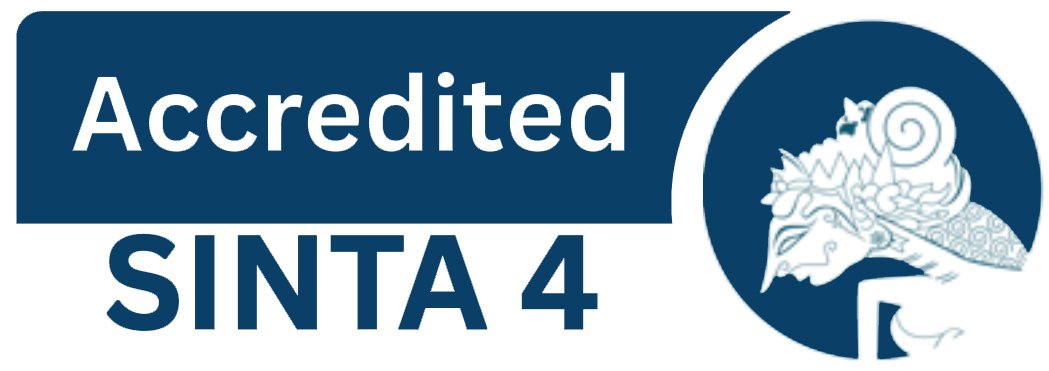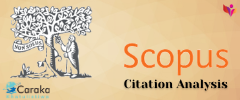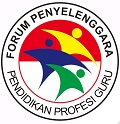Implementation of Constructivism-Based Game-Based Learning Model in Science Learning for Grade IV
DOI:
https://doi.org/10.22460/jpp.v4i1.27441Keywords:
Games-based learning, IPAS, Constructivism, LearningAbstract
This study aims to describe the implementation of a Game-Based Learning model grounded in constructivist theory in the teaching of Science and Social Studies (IPAS) in fourth-grade elementary school classrooms. This descriptive research explores the learning process that incorporates educational games to foster students’ active engagement in constructing conceptual understanding. The participants of this study were fourth-grade teachers and students at SDN 6 Metro Pusat. Data collection techniques included observation and interviews. The findings indicate that the use of Game-Based Learning enhances student participation in learning activities, promotes collaboration, and strengthens conceptual understanding through real-life learning experiences. Data presentation shows that 83% of students expressed agreement with the constructivism-based Game-Based Learning approach, categorized as forceful. In addition, teacher interviews revealed a score of 79%, categorized as strong. Thus, the constructivist-based Game-Based Learning approach has been proven to create an enjoyable learning environment and stimulate students' intrinsic motivation. These findings suggest that the implementation of educational games integrated with a constructivist approach has the potential to be an effective learning strategy to improve the quality of IPAS education in elementary schools
References
Alfansyur & Mariyani. (2020). Triangulasi metoda penelitian kualitatif. Borneo Novelty.
Bashooir, K., & Supahar, S. (2018). Validitas dan reliabilitas instrumen asesmen kinerja literasi sains pelajaran fisika berbasis STEM. Jurnal Penelitian Dan Evaluasi Pendidikan, 22(2), 219–230. https://doi.org/10.21831/pep.v22i2.19590
Daryanto, & Karim, S. (2017). Pembelajaran tematik terpadu. Gava Media.
Fitriyani, N., Suryani, N., & Hartati, S. (2022). Pengaruh penggunaan media game edukatif terhadap hasil belajar IPA siswa sekolah dasar. Jurnal Pendidikan Dasar Nusantara, 8, 55–64.
Hendryadi. (2020). Analisis validitas isi instrumen tes berpikir kritis ips kelas v sd kota yogyakarta. Jurnal Penelitian Dan Karya Ilmiah.
Nugraheni, R., & Setiawan, B. (2023). Implementasi pendekatan konstruktivisme dalam game-based learning untuk meningkatkan keterampilan berpikir kritis siswa SD. Jurnal Inovasi Pendidikan Dasar, 11, 101–110.
Prananda, G., Judijanto, L., Ramadhona, R., & Lestari, N. C. (2024). Evaluasi literatur terhadap pengaruh game-based learning dalam meningkatkan motivasi belajar siswa. Pendas: Jurnal Ilmiah Pendidikan Dasar, 9(4), 388-401.
Rahayu, S. D., Dayu, D. P. K., Khoiroh, H., & Moeljaningsih, W. (2024). Penerapan game based learning educaplay untuk meningkatkan keaktifan belajar pada pembelajaran ipas sekolah dasar. Didaktik: Jurnal Ilmiah PGSD STKIP Subang, 10(3), 511-519.
Riduwan. (2010). Skala pengukuran variabel-variabel penelitian. Alfabeta.
Rusman. (2017). Model-model pembelajaran: mengembangkan profesionalisme guru. Rajawali Pers.
Sahra & Aisiah. (2022). Validitas Isi Instrumen pengukuran literasi sejarah. Jurnal Family Education.
Suprapto, N., Kusumawardani, R., & Lestari, D. (2020). Membangun keaktifan belajar siswa melalui pembelajaran berbasis proyek dan konstruktivisme. 45–52.
Susanto, Risnita, & J. (2023). Tekhnik pemeriksaan keabsahan data dalam penelitian ilmiah. Pendidikan Sosial & Humaniora, 1.
Widodo, A., & Nurtanto, M. (2020). Pendekatan konstruktivistik dalam pembelajaran abad 21. Jurnal Pendidikan Karakter, 10, 10–20.
Zaini, M., & Rahman, M. T. (2021). Model dan strategi pembelajaran inovatif. FKIP Universitas Lambung Mangkurat.
Downloads
Published
How to Cite
Issue
Section
License
Copyright (c) 2025 Oky Prayogi, Ryan Dwi Puspita

This work is licensed under a Creative Commons Attribution-ShareAlike 4.0 International License.
Authors who publish with the Journal Pendidikan Profesi (JPP) agree to the following terms:
- Authors retain copyright and grant the journal the right of first publication with the work simultaneously licensed under a Creative Commons Attribution License (CC BY-SA 4.0) that allows others to share the work with an acknowledgment of the work's authorship and initial publication in this journal.
- Authors are able to enter into separate, additional contractual arrangements for the non-exclusive distribution of the journal's published version of the work (e.g., post it to an institutional repository or publish it in a book), with an acknowledgment of its initial publication in this journal.
- Authors are permitted and encouraged to post their work online (e.g., in institutional repositories or on their website) prior to and during the submission process, as it can lead to productive exchanges, as well as earlier and greater citation of published work. (See The Effect of Open Access)
Similar Articles
- Yanuar Rafindo, Puspa Dianti, Laili Linda Hartati, Application of ICT-Based Problem Based Learning Method as a Learning Innovation for Pancasila Education to Improve Learning Outcomes of Class VII D Students of SMPN 51 Palembang , Jurnal Profesi Pendidikan: Vol. 4 No. 1 (2025): June
- Izzah Millati, Agustina Tyas Asri Hardini, Improving the Cooperation Attitude of Grade V Students Through the Application of Problem-Based Learning Model in Pancasila Education Subjects , Jurnal Profesi Pendidikan: Vol. 4 No. 1 (2025): June
- Enur Nurmawati, Meningkatkan Motivasi dan Hasil Belajar Matematika Peserta Didik Kelas VII Melalui Penerapan Model Pembelajaran Problem Based Learning , Jurnal Profesi Pendidikan: Vol. 3 No. 1 (2024): June
- Luviani Sri Rezeki, Trisna Nugraha, Penggunaan Model Project Based Learning Berbasis Socio Scientific Issues untuk Meningkatkan Kemampuan Berpikir Kreatif Siswa Kelas IV Sekolah Dasar , Jurnal Profesi Pendidikan: Vol. 3 No. 2 (2024): December
- Evie Rahmawati, Latifah Latifah, Pemanfaatan Media Audio Visual dan Quizizz Pada Pembelajaran Daring Surat Pribadi dan Surat Dinas , Jurnal Profesi Pendidikan: Vol. 2 No. 2 (2023): December
- Kurnia Akbar, Citadewi Aditya, Lathifah Rizki, Nelly Ade Karisma, Selvi Novitasari, Widya Sulistia, Yulianti Yulianti, Penerapan Model Problem Based Learning Berbantuan Komik Digital untuk Meningkatkan Pemahaman Konsep Matematis Siswa pada Materi Perkalian Pecahan di Kelas V Sekolah Dasar , Jurnal Profesi Pendidikan: Vol. 3 No. 2 (2024): December
- Asih Martiasari, Jajang Bayu Kelana, Peningkatan Pemahaman Konsep Matematika Menggunakan Model Pembelajaran Problem Based Learning Berbantuan Media Manipulatif Untuk Siswa Sekolah Dasar , Jurnal Profesi Pendidikan: Vol. 1 No. 1 (2022): June
- Paulina Sri Fajar Br. Aritonang, Rika Amelia, Rizky Afianto, Salsabila Amalia, Aflich Yusnita Fitrianna, Penerapan Problem Based Learning (PBL) dalam Meningkatkan Kemampuan Berpikir Kritis Siswa di Sekolah , Jurnal Profesi Pendidikan: Vol. 3 No. 2 (2024): December
- Ayang Wike Sintia, Jajang Bayu Kelana, Anugrah Ramadhan Firdaus, Peningkatan Keterampilan Berpikir Kritis Pada Mata Pelajaran IPA Materi Rangkaian Listrik Sederhana Dengan Menggunakan Model Pembelajaran STEM di Kelas VI Sekolah Dasar , Jurnal Profesi Pendidikan: Vol. 3 No. 1 (2024): June
- Kamilia Salsabila, Susanti Sufyadi, Agus Hadi Utama, Systematic Literature Review: The Utilization of the Edutainment Learning Model on Students’ Learning Motivation , Jurnal Profesi Pendidikan: Vol. 4 No. 1 (2025): June
You may also start an advanced similarity search for this article.
















